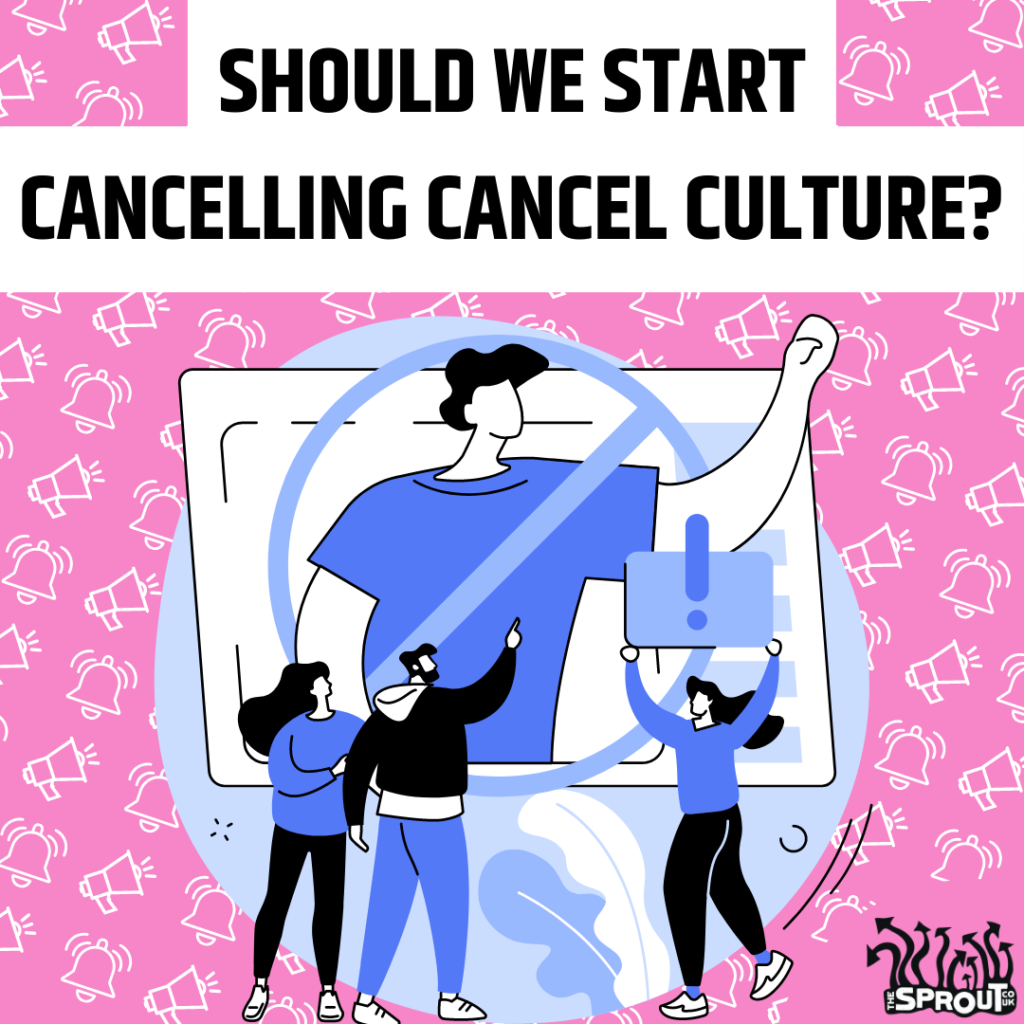Cancel culture has become increasingly popular and normalised in society but does this mean that it’s okay?
What is cancel culture?
According to the Oxford dictionary, cancel culture is “the practice of excluding somebody from social or professional life by refusing to communicate with them online or in real life, because they have said or done something that other people do not agree with”.
In practice, ‘cancelling’ someone is usually for groups of people to call for repercussions to someone’s behaviour, even if it’s retrospectively. For example, something that a famous person once said online 20 years ago could be resurfaced today and be grounds for their cancellation. Cancellation can come in many forms, from social media slander to people being fired (or forced to quit) their jobs.
Why did this all start?
The whole purpose of cancellation is supposed to be a form of justice. Many use it to hold people to account for their wrongdoings and, therefore, highlight to others the desired way to act in society.
Publically shaming people for their choices or mistakes is nothing new. In fact, the UK has a rather sadistic history of using public punishment like stocks and whippings for minor crimes. This is known as retributive justice.
Retributive justice is based on society’s desire to dish out deserved punishment to someone for the harm they caused. Going back even further, retributive justice can even be seen in the Bible, saying “eye for an eye, tooth for a tooth”.
Today, reasons people are cancelled usually stem from instances where people have been unkind or discriminatory to specific groups. Common grounds for cancellation include but are not limited to homophobia, racism, and sexism.
The influence of social media on cancel culture
With the rise of the internet and social media, publically shaming people is easier than ever and gives a voice to individuals to those who previously have not had one.
Many people possess the power to cancel someone at their fingertips, which calls to question how ethical this is. Let’s explore how ethical cancel culture is and why are some people worried about its existence?
4 main problems of cancel culture
1. Free speech
Under Article 10 of The Human Rights Act, everybody has the right to Freedom of Expression. This means that everybody has the right to have and share their thoughts and opinions about things. Some people are worried that cancel culture threatens the right to Freedom of Expression, as saying something undesirable may bring about your cancellation.
2. Talking accountability
Retributive justice focuses on punishment rather than allowing people to face the consequences. An alternative to this is restorative justice, which suggests that people should face the consequence of their actions but be given the opportunity to make things right. By focussing on restorative justice, people are able to take accountability for their wrongdoings and work toward a better future, rather than being cancelled with no chance to redeem themselves.
3. The context
People are often cancelled for things that they have done in the past. However, being able to cancel someone for their prior mistakes suggests that people cannot grow. This attitude implies that we are the same people with the same beliefs that we have always had. In fact, our experiences and the people we meet as we age can help us to change our minds and attitudes toward things.
Additionally, something that is deemed undesirable in today’s society and be grounds for cancellation may have been completely socially acceptable even 10 years ago! Cancel culture does not allow for the evolution of societal values.
4. Forgiveness
If you had done something wrong, apologised, and still been told “tough luck, that’s the end of the line for your career” because of something you had done previously, you’d feel pretty rubbish. Well, cancel culture does not permit those who are cancelled to gain forgiveness from the masses. This can be really damaging for a person’s emotional well-being and mental health.
Related Information
If you’d like to hear more people’s opinions on cancel culture, there are so many videos online that you can watch online for free, including:

